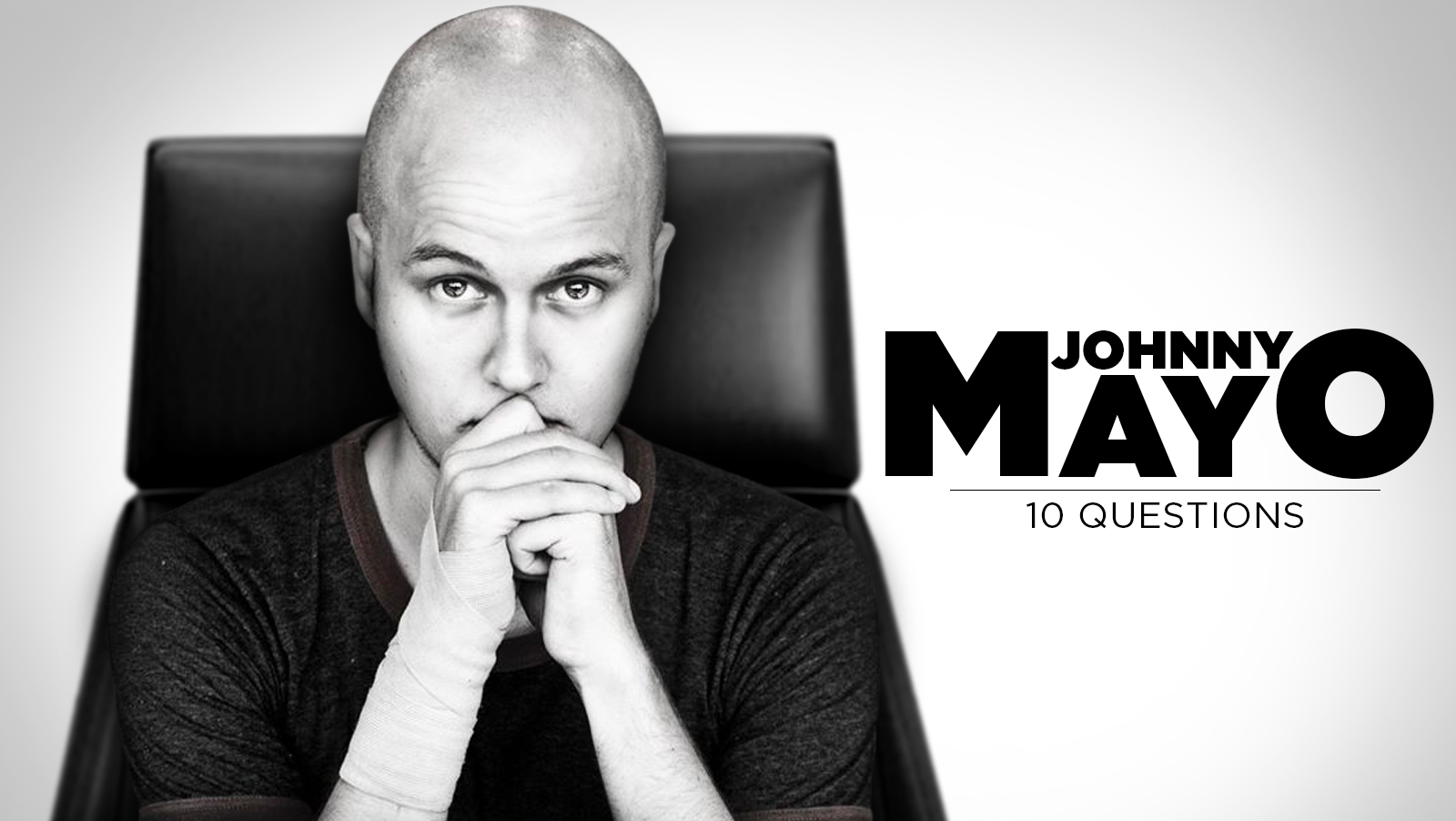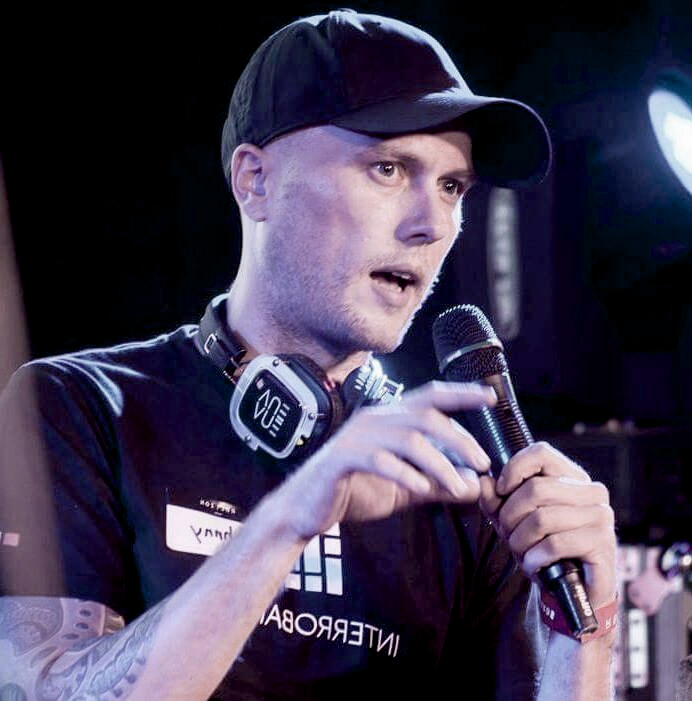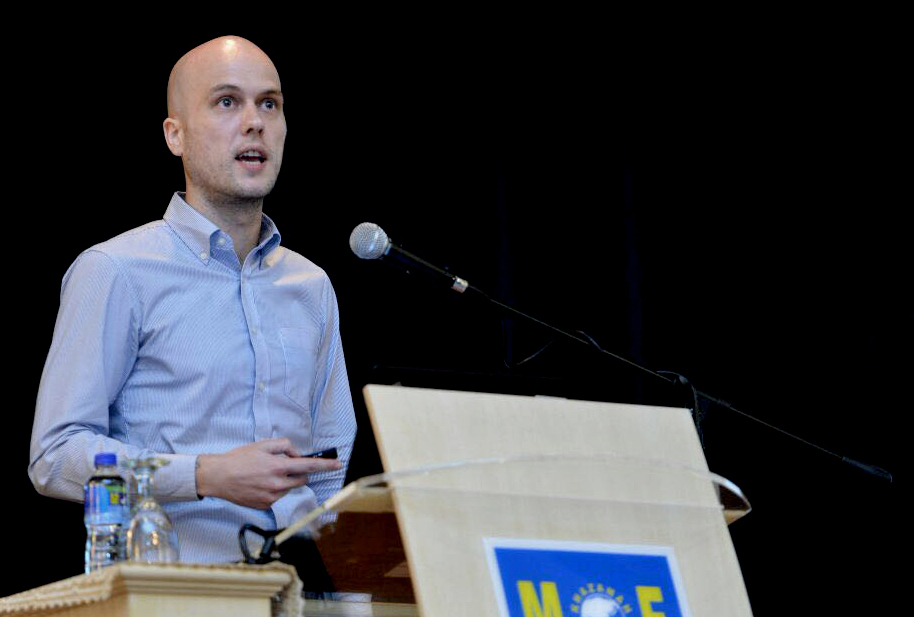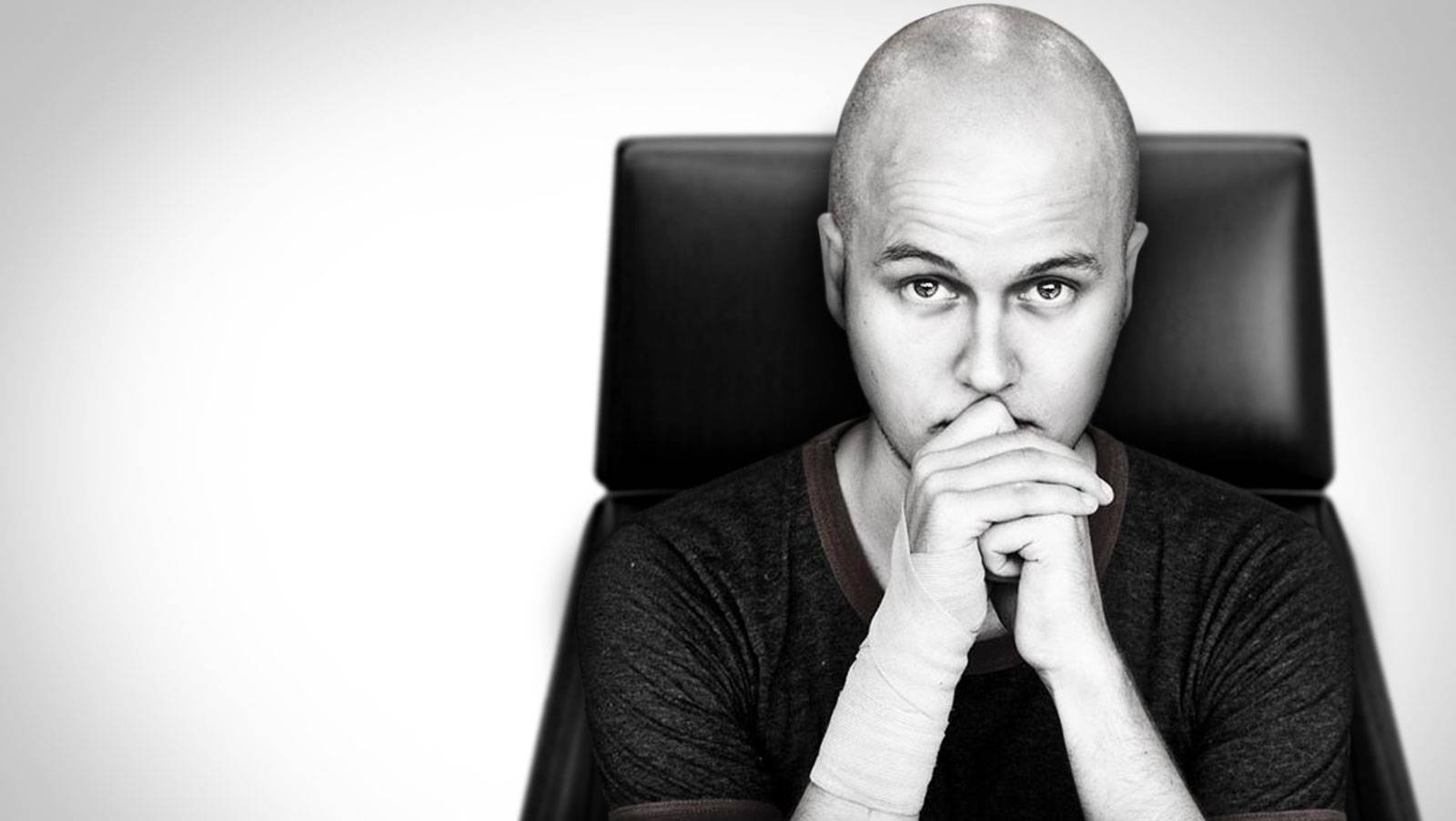There’s nothing more fun and ego boosting than being the life of a party. But what if you are the guy who ruins it?
Meet Johnny Mayo, a UK-born and Malaysia-based technologist, who claims to be that person. He speaks of Bitcoin and blockchain technology so passionately, it scares people. Well, the skeptics and the cynics to be exact.
 Johnny considers himself a Bitcoin evangelist, and has organized the world’s first bank-backed blockchain hackathon. The same DNA also headed a tech venture that was admitted by Silicon Valley’s 500 Startups, and in the process, earned him various accolades including the prestigious Forbes Asia’s 30 under 30 in the Finance and Venture Capital category last year.
Johnny considers himself a Bitcoin evangelist, and has organized the world’s first bank-backed blockchain hackathon. The same DNA also headed a tech venture that was admitted by Silicon Valley’s 500 Startups, and in the process, earned him various accolades including the prestigious Forbes Asia’s 30 under 30 in the Finance and Venture Capital category last year.
In this series of 10 Questions, Johnny shares the growing pains of London outsiders, his Asia adventure, how the financial system has screwed up all of us, and of course, Bitcoin, Bitcoin and Bitcoin.
Stephanie Raquel: Tell us about your Forbes 30 under 30 Asia recognition under Finance and Venture Capital category last year. What led you to that spot?
Johnny Mayo: I would like to say hard work and perseverance, but it was probably just a case of spotting the opportunity early. There aren’t a lot of blockchain startup founders in their 20’s, less so outside of Silicon Valley. I was lucky to be in the right place at the right time, but perhaps more importantly working with the right technology and backed by the right team.
My initial reaction to making the list was, quite honestly, a warm sense of validation. I had been blabbering about Bitcoin since the early days and took part in countless conversations about how it was a flawed technology or is finally ‘dead’. My day-to-day life hasn’t really changed a great deal since though. While it’s a cool accolade to have on the CV and sharing opinions at conferences can be fun, I’m still just trying to keep my head above water like everybody else.
SR: All those Bitcoin-blabbering were worth it then! Talking about spotting opportunity early, walk us through your experience and this feat of organizing the world’s first bank-backed blockchain hackathon with DBS in Singapore. What lesson from this breakthrough experience in blockchain can the gaming industry learn?
 JM: It was the first proper test of our technology stack, but most of the credit had to go to the innovation team within DBS. They are easily one of the most future focused banks in the region, if not the world. The #1 lesson we learned is that preparation is key – especially for hackathons and doubly so if blockchains are involved. We had spent months developing our framework application and API for eight different blockchains and had been using it internally to develop products, but for many participants it was their first exposure to the concept of a blockchain. We did a number of workshops with entrants in the run up to the event to get them up to speed on the tech, how it all works, and the best use cases to exploit it.
JM: It was the first proper test of our technology stack, but most of the credit had to go to the innovation team within DBS. They are easily one of the most future focused banks in the region, if not the world. The #1 lesson we learned is that preparation is key – especially for hackathons and doubly so if blockchains are involved. We had spent months developing our framework application and API for eight different blockchains and had been using it internally to develop products, but for many participants it was their first exposure to the concept of a blockchain. We did a number of workshops with entrants in the run up to the event to get them up to speed on the tech, how it all works, and the best use cases to exploit it.
Banking and gambling are two worlds that don’t often come into contact with each other, but like any business they share some of the same fundamentals; risk management, chasing a profit etc. Building anything on a blockchain the first two questions are always the same – do you really need a blockchain for that, and if so, which one? A lot of projects aren’t able to competently answer those.
SR: Banking and gambling maybe two different worlds but they certainly do come in contact with each other. Their relationship though can be compared to how youth nowadays describe theirs–‘it’s complicated’ status–but they do and have to co-exist in the system. But with technologies such as Bitcoin and other cryptocurrencies, it could be a different ball game.
Obviously, Blockchain technology has changed the game for you. What I am interested to know is how were you drawn into the blockchain world?
JM: I actually didn’t think much of it when I first saw it. I didn’t really understand the implications. Learning about Bitcoin forced me to learn about how fiat currencies work, and the more you look down that rabbit hole, the more frightening it gets. I’ve become that guy who ruins parties by talking about how money isn’t real. As soon as people lose faith and do a run on the banks the whole system collapses. Every new note brings us one step closer to the bread line. Bitcoin is a very real alternative to that system which the world is going to badly need someday.
World events accelerated my interest. I moved to Asia to work in finance in 2007 just before the global recession hit, and suddenly I was left stranded on the other side of the world with no safety net and no long-term job prospects. Then not long afterwards the bailouts began and it hit home just how badly we all got screwed. The world struggles to feed everyone and provide adequate health care, yet we can globally pool together over a trillion dollars to save a bloated financial system? And then they gave themselves bonuses for doing it! It’s the biggest scam ever pulled and we were all too busy playing petty politics to notice.
SR: That’s quite infuriating.
Well, speaking of opportunities, you’ve been around the world. You’ve lived in three continents, moved to Asia 10 years ago, and co-founded the first Malaysia-based startup that made it into 500 startups in Silicon Valley. How did you manage to achieve all of these at an early age?
JM: If you live in the UK but outside of London you’re somewhat limited in your options, so I started working as soon as I could. I was helping to manage an off-license at 13 and was in full-time employment as soon as I turned 16. While it would have been nice to go to college and get a degree, it just wasn’t a viable option for me. On the plus side, by the time my friends graduated I already had several years of work experience and none of the crippling student debt. I don’t regret the path I ended up on.
That said nothing really prepared me for the last decade. There was no real plan to speak of, I just wanted to spread my wings and see the world. I thought my Asian adventures would only last a few months–six at most. One thing just led to another and it’s all got a bit out of hand.
SR: You started young then! Do you think this interest in such things–blockchain and bitcoin–which still millions of people are skeptical about, has something to do with your upbringing and lifestyle in the UK?
JM: Not really. Asia made me appreciate just how high the standard of living in the UK really is. People still find things to be offended by or complain about, but relatively speaking we have it pretty good there. Yes, Brexit will be awful, the NHS is struggling, and my generation has been sold out by those that preceded us, but things just generally work. People make an effort to recycle and we have things like health and safety and the Highway Code. Asia was a crash course in humanity and a realisation that life is short, and cheap, and worth it.
If I was still living in the UK I doubt I would have been as excited by Bitcoin, although incidents and organisations like RBS would definitely make me take notice.
SR: When the internet was first being developed most people could never have imagined the impact it would have on almost every element of their lives. How would you persuade a Bitcoin skeptic on its potential?
JM: It’s no longer a case of wait and see–the technology just works. The Bitcoin blockchain has a better uptime rate than your bank. It contains billions of dollars in value for all to see. There are countless people coming up with countless ways to break it and none of them have been successful so far.
The beauty of the blockchain is that it’s permissionless innovation. You don’t need anyone’s consent to go out and build something. Like all good things it will take time–probably a generation or two – but already there are very smart people working on closing the circle; how to pay your mortgage, acquire loans, or settle everyday bills with Bitcoin. When people realise they don’t have to be at the mercy of poor monetary policy anymore, they won’t.
SR: What breakthrough in blockchain and bitcoin is still yet to be seen and discovered?
 JM: I think a lot of people miss the point and fail to realise that Bitcoin is the breakthrough. What better use case can you think of than creating digital gold? And then getting people all over the world to participate, with zero marketing budget, purely by demonstrating that it’s a viable alternative and transparent and mathematically based. It’s difficult to explain just how much of an achievement that is because there’s literally nothing we can compare it to. There’s no benchmark for where this is going to go.
JM: I think a lot of people miss the point and fail to realise that Bitcoin is the breakthrough. What better use case can you think of than creating digital gold? And then getting people all over the world to participate, with zero marketing budget, purely by demonstrating that it’s a viable alternative and transparent and mathematically based. It’s difficult to explain just how much of an achievement that is because there’s literally nothing we can compare it to. There’s no benchmark for where this is going to go.
The biggest barrier to adoption is, and probably always will be, the educational curve. Bitcoin can be a lot to take in at first glance, but sooner or later people will be forced to learn. Just ask your local Venezuelan.
SR: With your skills and experiencesyou can be anywhere in the world. Why choose Asia, Malaysia specifically, as your base and build blockchain-centered business in the country?
JM: Asia has all the right demographics and is where the future lies. The balance of buying power is shifting from west to east and it’s here where all the best use cases are–the underbanked, the emerging middle class, and the consumer culture. Malaysia specifically has an English speaking population and an extremely talented workforce. You can develop a project here for a fraction of the cost compared to the UK or US.
SR: With everything that you have accomplished and everything that you do, how do you maintain balance in your life?
JM: For every hour spent at conferences or in talks there’s at least two spent vegetating in front of the PlayStation. Life is all about finding a balance and success isn’t always everything–happiness is. I only recently discovered how important it is to keep active and try to stay in shape. For the past two years I’ve ran an average of 30km a week because the gym provides some sort of solace. While the improvement in physical health is a big plus, it’s the difference in mental health that keeps me ticking.
Generally speaking I think people tend to take life too seriously. You’re going to die, and in a hundred years no one will care that you even existed. Just enjoy the ride while it lasts.
SR: In five years, where do you think blockchain would be and would you still be dancing in its world?
JM: While it will be exponentially stronger than it was five years ago, new technologies take time to develop and it will be a generation or so until it’s commonplace. Different countries are going to take very different approaches and it will be interesting to see who takes the initiative. The U.S. has a strong stable of startups; China has the mining power, while the UK and Singapore are competing to adopt the technology on a governmental level. The global race for blockchain supremacy is very much underway.
For better or worse I think regulation will play a huge role in the next five years. People need to realise that regulation isn’t always a bad thing. While sometimes regulations can be overbearing, they’re also legitimising and usually exist for a reason. As for my involvement, who knows? I wouldn’t say I’ve been dancing with it all that much–it’s someone else’s girl after all. More like flirting with it from across the bar.
